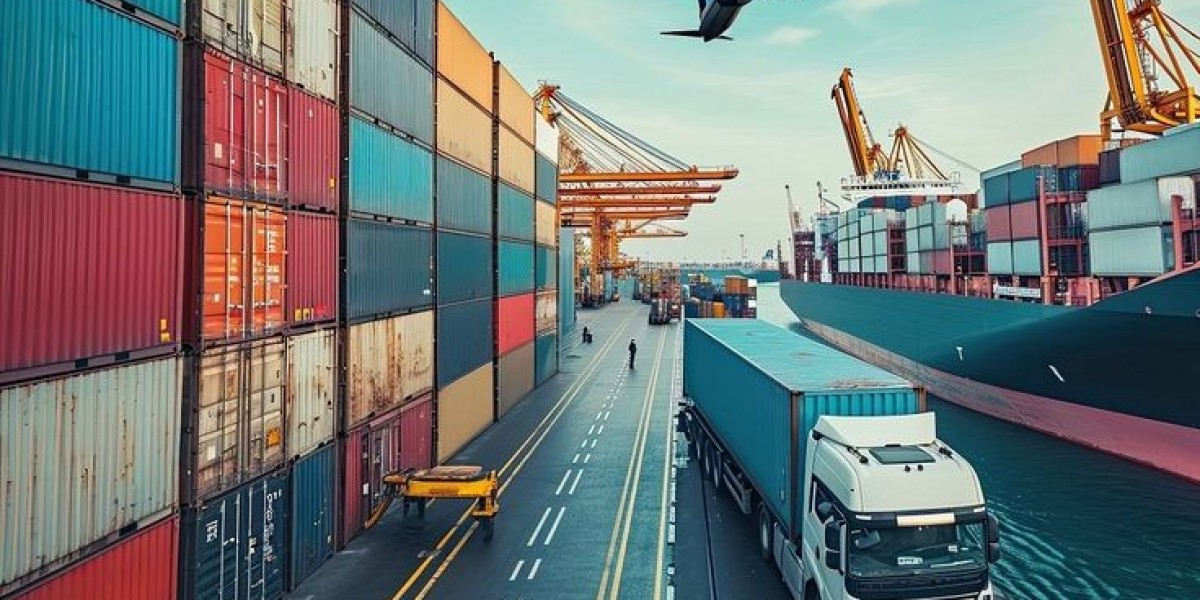In today's fast-paced world, logistics is more than just the movement of goods—it's a precision science that can make or break an operation. Whether it’s military fleets, transportation systems, or commercial vehicles, Fleet Logistics Support is critical to maintaining performance, improving turnaround times, and reducing costs. So, how can Fleet Logistics Support improve operations? Let’s explore the answer through the lens of technology, strategy, and sustainability.
1. What is Fleet Logistics Support?
Fleet Logistics Support refers to the coordination, maintenance, provisioning, and overall management of vehicles, ships, aircraft, or any movable units that are part of an operational fleet. This system ensures that every component—fuel, equipment, maintenance, scheduling, and personnel—is aligned for maximum performance and minimal disruption.
It involves not just the physical assets, but also the strategic planning of supply chains, routing, predictive maintenance, and real-time monitoring.
2. Key Areas Where Fleet Logistics Support Boosts Operations
A. Predictive Maintenance and Reduced Downtime
Fleet logistics systems integrate real-time diagnostics and analytics to predict wear and tear before it becomes a problem. Through sensors and AI, issues can be flagged early, allowing for proactive maintenance.
B. Efficient Inventory and Spare Parts Management
Fleet logistics support ensures that essential spare parts are always available. Centralized inventory systems track usage rates and reorder parts automatical
C. Route Optimization and Fuel Efficiency
With integrated GPS tracking and AI-powered route planning, fleet logistics systems can choose the most fuel-efficient and time-saving paths.
D. Enhanced Communication and Coordination
Advanced fleet logistics platforms promote real-time communication between drivers, support teams, and dispatch centers.
E. Cost Control and Resource Allocation
Fleet logistics support helps track and manage operational costs in real time—fuel usage, maintenance expenses, labor, etc.
3. Technological Advancements in Fleet Logistics
Innovation is driving a new era in logistics. Some technologies transforming Fleet Logistics Support include:
IoT Devices: Monitor vehicle performance and location.
AI and Machine Learning: Forecast demand, breakdowns, and route risks.
Cloud-Based Systems: Enable global data access and centralized control.
Drones and Robotics: Aid in warehouse inventory and battlefield resupply.
These advancements make logistics smarter, faster, and more adaptive to real-time challenges.
4. Industry Applications of Fleet Logistics Support
A. Military and Defense
Perhaps the most advanced example of fleet logistics is in military operations, where precision and timing are non-negotiable. Fleet logistics ensures readiness, supplies, and tactical support in high-pressure scenarios.
B. Commercial Transport and Delivery Services
Logistics giants like Amazon and FedEx rely on sophisticated fleet support to guarantee next-day deliveries. Route planning, vehicle health, and automated tracking are central to their success.
C. Public Transportation
Buses, trams, and service vehicles benefit from centralized maintenance scheduling and resource management, improving reliability for passengers.
D. Emergency and Healthcare Services
Fleet logistics in ambulances and mobile medical units ensures life-saving equipment and personnel are always in the right place at the right time.
5. Sustainability and Green Logistics
Fleet logistics also plays a vital role in reducing environmental impact:
Promotes eco-driving practices
Facilitates electric vehicle integration
Enables carbon tracking and reporting
By improving fuel efficiency and reducing unnecessary vehicle movement, logistics support contributes to a more sustainable operational model.
6. Challenges in Implementing Fleet Logistics Support
Despite its benefits, there are challenges:
High initial investment in software and hardware.
Training personnel to adapt to new systems.
Data security risks with centralized systems.
However, these challenges are outweighed by the long-term operational and financial gains.
7. The Future of Fleet Logistics Support
As AI, automation, and connectivity continue to evolve, fleet logistics will become even more intelligent and predictive. Integration with smart cities, autonomous vehicles, and blockchain-based tracking systems will transform how logistics is perceived—not just as a support system, but as a core driver of operational success.
Conclusion
Fleet Logistics Support is more than an operational convenience—it's a strategic necessity. By enabling predictive maintenance, efficient route planning, cost control, and eco-friendly practices, it significantly enhances performance and productivity. Whether in defense, commerce, or public service, investing in robust fleet logistics is a powerful move toward smoother, smarter, and more successful operations.






